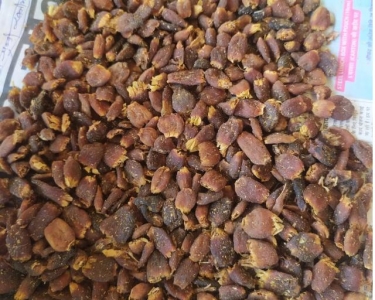Computer components
Couldn't find the product you want?
Fill out this form to request the product.
Products You May Like
Export from United Kingdom
The United Kingdom has a partially regulated market economy. London is one of the three "command centers" of the global economy (alongside New York City and Tokyo).
The automotive industry is a significant part of the UK manufacturing sector and employs over 800,000 people, with a turnover of some 52 billion, generating 26.6 billion of exports.
Agriculture is intensive, highly mechanized and efficient by European standards, producing about 60% of food needs with less than 1.6% of the labor force (535,000 workers). Around two-thirds of production is devoted to livestock, one-third to arable crops. Farmers are subsidized by the EU's Common Agricultural Policy. The UK retains a significant, though much reduced fishing industry. It is also rich in a number of natural resources including coal, petroleum, natural gas, tin, limestone, iron ore, salt, clay, chalk, gypsum, lead, silica and an abundance of arable land.
The United Kingdom mainly exports machinery and transport equipment, manufactured products, chemical products, mineral fuels, lubricants, vehicles, gems, precious metals, pharmaceuticals, electronics, medical equipment, aircraft, spacecraft, plastics, beverages.
Main export partners of UK are the United States, Germany, France, the Netherlands and Ireland.
Import to United Kingdom
The UK, a leading trading power and financial center, is the third largest economy in Europe after Germany and France. Agriculture is intensive, highly mechanized, and efficient by European standards, producing about 60% of food needs with less than 2% of the labor force. The UK has large coal, natural gas, and oil resources, but its oil and natural gas reserves are declining and the UK has been a net importer of energy since 2005. Services, particularly banking, insurance, and business services, are key drivers of British GDP growth. Manufacturing, meanwhile, has declined in importance but still accounts for about 10% of economic output.
The United Kingdom has the fifth-largest national economy (and second-largest in Europe) measured by nominal GDP and tenth-largest in the world (and second-largest in Europe). The UK has been the fastest growing economy in the G7 for 3 consecutive years as of October 2015. In 2014 the UK was the ninth-largest exporter in the world and the fifth-largest importer, and had the second largest stock of inward foreign direct investment and the second-largest stock of outward foreign direct investment. The UK is one of the world's most globalised economies. The UK economy comprises (in descending order of size) the economies of England, Scotland, Wales and Northern Ireland.
The United Kingdom mainly imports fuels, cars, crude petroleum, refined petroleum, packaged medicaments, computers, lubricants and related materials and chemicals.
U.K. main import partners are Germany, China, United States, Netherlands and France.
Buy Computer Components in a Bundle
Looking for ways to save money on your computer? Then it's important to learn how to build your own computer system. This can help make sure that your computer has everything you need while getting rid of any unnecessary items.
What are Computer Components?
The most important parts of the computer are the computer components or hardware that represent the physical parts of a computer composing a computer system, such as the monitor, mouse, keyboard, computer data storage, hard disk drive (HDD), and system unit.
What are the Different Computer Parts and Their Functions?
A typical desktop computer consists of a computer system unit, a keyboard, a monitor, and a mouse. The computer system unit is the enclosure for all the other main interior components of a computer, like sound cards, memory drives, and motherboard. It can also be called a computer case or computer tower. Cases are usually made of steel or aluminum and sometimes plastic. While most of them are black metal boxes, some manufacturers try to give the unit some flair by adding color and design elements. The personal computer is one of the most common types of computer due to its versatility and low pricing. Laptops are generally similar, although many use lower-power or reduced size components for laptops.
When purchasing computer components, you must be aware of what functions they have and where they belong in a computer system. The central processing unit (CPU) is the brains of the computer where most calculations take place. In terms of computing power, the CPU is the most critical element of a computer system.
Before LCD monitors existed, most used cathode ray tubes for computer monitors. These monitors come with a variety of methods like desktop monitor, VESA mount, panel mount, and open frame monitor for mounting them depending on the application and environment. The motherboard is the main component of a computer. It is a large rectangular board with integrated circuitry that connects the other parts of the computer, including the CPU, the RAM, the disk drives (CD, DVD, hard disk, or any others) as well as any peripherals connected via the ports or the expansion slots.
Power supply units (PSU) convert alternating current electric power to low-voltage DC power for the internal components of the computer. Laptops are capable of running from a built-in battery for hours.
As processors, graphics cards, RAM, and other components in computers have increased in speed and power consumption, the amount of heat produced by these components has also increased. These components need to be kept within a specified temperature range to prevent overheating, instability, malfunction, and damage. That's why a computer fan is a necessary part of the system, and a computer case used for active cooling of the system can be helpful as well.
Get Yours on Export Portal
Export Portal offers a variety of computers, laptops, and hardware components. Buy computer parts on our site to get the utmost performance and stability.
Customs requirements of United Kingdom
United Kingdom Customs Contacts
Website: https://www.gov.uk/government/organisations/hm-revenue-customs
E-mail: customs.hotline@hmrc.gsi.gov.uk
Address: Freepost NAT22785, CARDIFF, CF14 5GX, United Kingdom
The United Kingdom or Britain is a country lying off the north-western coast of the European mainland. It includes the island of Great Britain, the north-eastern part of the island of Ireland, and many smaller islands. UK is surrounded by the Atlantic Ocean, also borderd by the North Sea, the English Channel and the Celtic Sea. The country is a member of the European Union, International Chamber of Commerce, World Customs Organization (WCO), World Trade Organization and many other international organizations.
Tariffs
The UK is part of the harmonised trade system of the EU and importing and exporting are covered by EC Regulations.
A Common External Tariff (CET) is applicable to other countries.
The European Community has created the Binding Tariff Information (BTI) system as a tool to obtain the correct tariff classification for goods for import or export. Before shipping any goods, it is recommended to obtain a written BTI customs duty ruling from The HM Revenue & Customs (HMRC).
Import licences are required for a number of items including:
- agricultural products
- plants and animals
- foods
- medicines
- textiles
- chemicals and firearms
The licensing requirement may also depend on the country of origin of the product.
Imports of food and agricultural products from outside the EU covered by the Common Agricultural Policy (CAP goods) are often subject to customs duty and quotas and may require a licence or certificate.
The Food Standards Agency (FSA) provides information on importing food from outside the EU.
Trade with certain countries is forbidden or restricted in accordance with UN, EU or OSCE sanctions.
Product certification, labelling and packaging
Packaging
Packaging must meet all EU and UK requirements. To reduce the impact of packaging on the environment, the EU has legislation concerning the management of packaging and packaging waste.
CE Mark
The CE mark is a mandatory conformity marking for certain products sold within the European Economic Area (EEA).
Labelling
All labelling and information directives of the European Council must be met, as well as local and national regulations.
Food information and labelling legislation must comply with EU legislation and is enforced through the Food Labelling Regulations 1996 (FLR).
For organic produce, EU legislation requires that imported organic food from third countries be produced to the same standards as that from the UK or EU.
Documentary requirements
Economic Operator Registration and Identification (EORI): An EORI number is unique throughout the European Community. This number is used in all communications with any EC customs authorities. The implementation of EORI in the UK replaced the previous customs trader identification system, TURN. All UK EORI numbers start with the letters GB.
In order to obtain an EORI number, you must submit an application form.
Commercial invoice
There are no prescribed forms and a minimum of two copies are required. Different methods of payment may require additional copies.
The invoice must include:
- clear and precise descriptions of goods
- terms of sale and payments
- all details necessary to establish full prices paid
- gross and net weights
- the country of origin
Separate certificates of origin are not mandatory but may be required depending on the terms or method of payment or as documentary proof of origin for certain goods.
Bill of lading
No special requirements, a minimum of two original copies are required and additional copies are required for customs if goods are transhipped en route.
Packing list
Not obligatory, but simplifies clearance if a variety of goods are packed in different cases.
Certificate of insurance
Not obligatory unless quotation was CIF. Useful for valuation in case of disputes.
Sources:
https://www.gov.uk/guidance/export-declarations-and-the-national-export-system-export-procedures
https://www.gov.uk/government/collections/import-and-export-procedures
https://www.gov.uk/guidance/exporting-goods-from-the-eu-to-a-third-country-outside-the-eu





